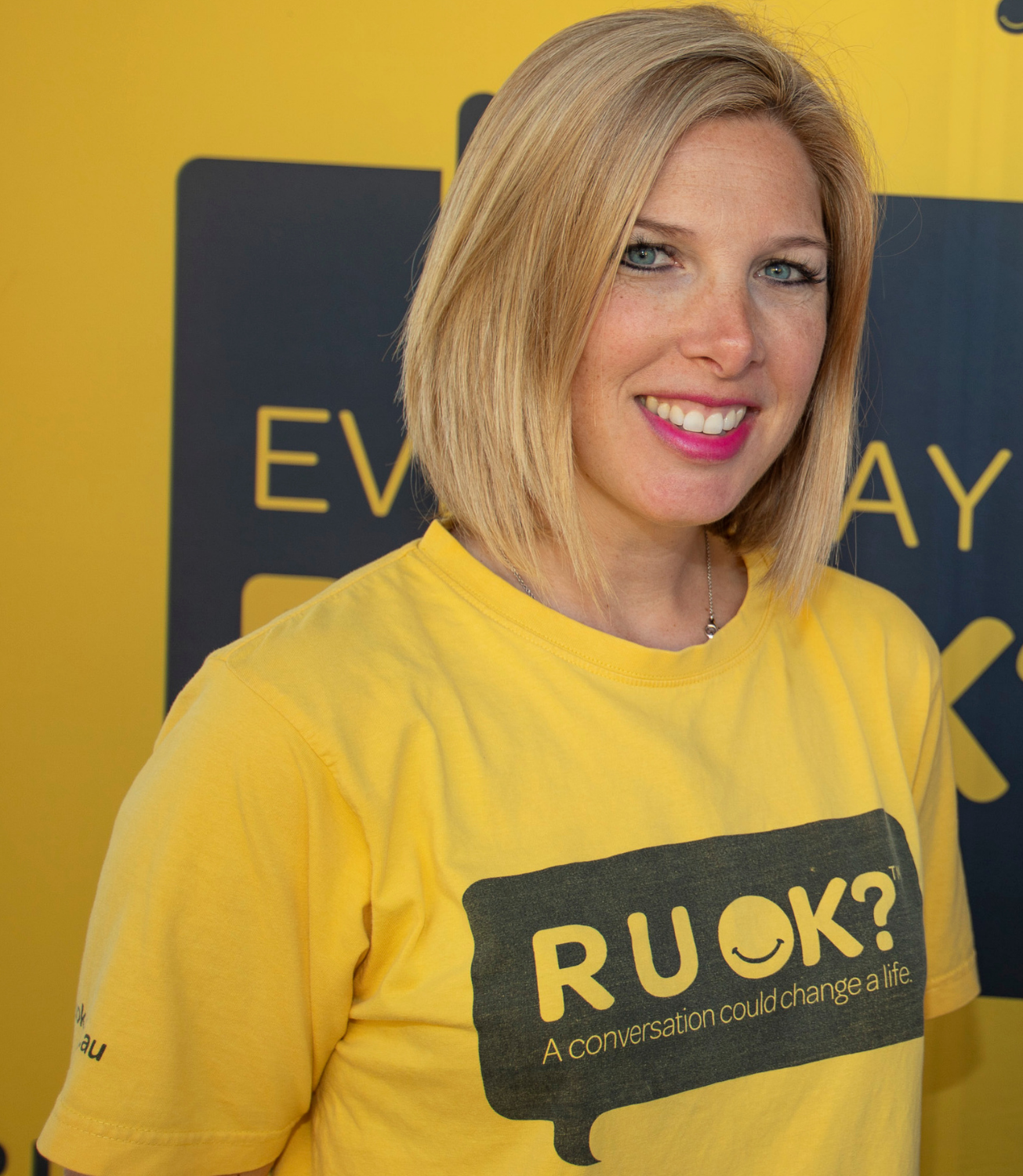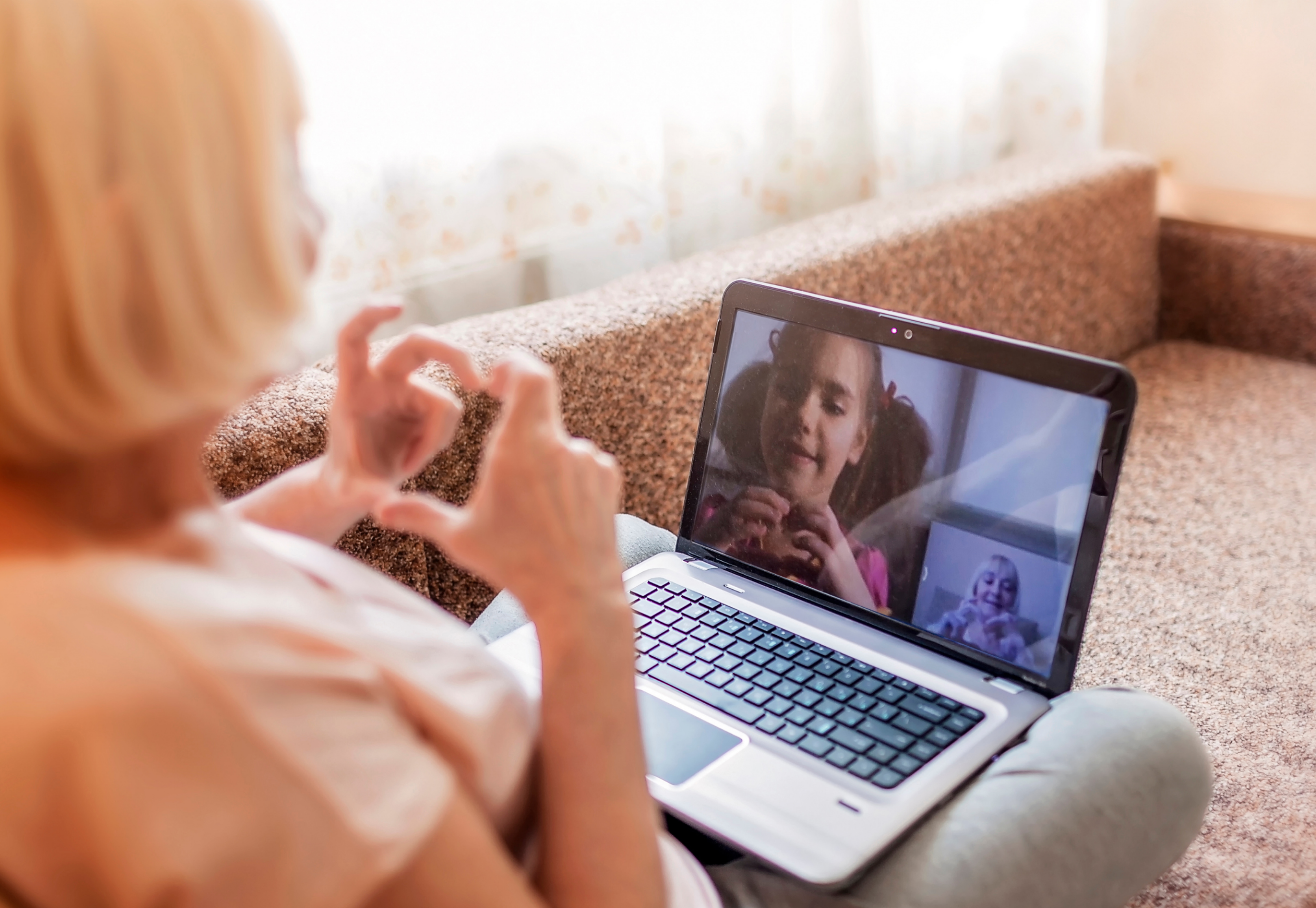
What to say after R U OK?
Are you okay?
With these three seemingly simple words, we each have the power to spark a conversation that may just change a life.
And, in a year that’s proving to be among the most personally and professionally challenging in recent memory, there really is no time like the present to ask: R U OK?
R U OK?Day
Since 2009, R U OK?Day has helped Australians understand the importance of checking in on those around them who may be struggling with life’s ups and downs.
A national day of action, it reminds us that every day is the day to ask: R U OK?
This year, R U OK? – the Australian suicide prevention charity behind the annual event – is asking us all to learn what to say when someone says they’re not.
“Time is one of the most valuable things we can share with the people that we care about,” says Katherine Newton, CEO at R U OK.
“When someone in your life is struggling, it’s natural to ask them if they’re OK but it can sometimes be difficult to know what to say next.”
You don’t have to be an expert to keep the conversation going, says Katherine.

R U OK? at nbn
Australians across the nation, including in workplaces, schools and community groups, are encouraged to get involved – on R U OK?Day and every day.
At nbn, employees can tune in to a dedicated webinar this R U OK?Day, which focuses on creating and maintaining wellbeing through connection with others.
“Staying connected with each other has always been important but staying connected while we’re physically apart has never been more vital,” says Peter Clements, Executive General Manager for Health, Safety, Environment and Facilities at nbn.

“As different parts of Australia are under varied levels of COVID-19 related restrictions, and our people continue their work under altered circumstances whether they are in the field, in the office or at home, maintaining regular human connection will be crucial to our wellbeing as we navigate these difficult and uncertain times.”
The webinar will also help nbn employees to recognise signs of mental deterioration and mental illness, and how to have a conversation with someone they may be concerned about.
“This year’s theme, ‘There’s more to say after R U OK?’, reminds us all of the importance of staying connected,” says Peter, “with our co-workers, our friends and our family during what has been a challenging year for so many of us.”

Staying connected
In years gone by, it was harder to keep in touch with loved ones living further afield. Fortunately, it’s now made easier with the help of connectivity.
Yet, for many people, they can still feel isolated due to the lack of face-to-face interactions.
“Touch is such a rich source of affirmation, security, safety and being seen for a lot of us,” psychologist Sabina Read told Beyond Blue. “But there are other ways to manifest and nurture that without physical touch in light of the crisis that we’re in.”

Just some of the ways you can stay connected – and check in with family and friends – include:
- making one-on-one or group video calls using technology such as Zoom, Skype and FaceTime
- scheduling your regular social catch ups online, like book clubs, trivia nights and family dinners
- a simple phone call
“We under-estimate sometimes the comfort that phone contact can bring, you can still feel a sense of connection and closeness even if it’s not face-to-face,” says Sabina.
And it may help to look at it this way.
“Think of this time not as social distancing but as physical distancing. We may be physically apart but we need to stay socially and emotionally connected,” says Beyond Blue.
Some resources that may help during this time include:
Tips for staying safe online during the COVID-19 pandemic, eSafety Commissioner
Coping with isolation and being at home, Beyond Blue
There’s more to say after ‘R U OK?’
R U OK’s Katherine echoes Peter’s sentiment about 2020: it’s been a challenging year for everyone, and circumstances have made it even more important for us all to stay connected.
And, says Katherine, it’s even more important – for those who are able – to be willing to support those around us.
According to recent data from R U OK?, Australians increasingly understand how important it is to reach out to those who might be struggling.
Yet, 31 per cent of Australians lack confidence or are unsure how to have a conversation with someone who is not OK.
To help support the kinds of meaningful conversations that could change a life, R U OK? suggests these simple steps:
- Ask
- Listen
- Encourage action
- Check in
Coinciding with World Suicide Prevention Day this year, R U OK?Day will also help raise awareness of the scale of suicide globally, and the important role we can each play in prevention efforts.
So, do you know what to say after ‘R U OK?’
Find help
If you are concerned for your safety or the safety of others, seek immediate assistance by calling Triple Zero (000).
1300 22 4636
Call 24/7 for advice, referral and support from a trained mental health professional.
1300 659 467
24/7 free counselling and support for people at risk of suicide, carers and bereaved.
1300 78 99 78
24/7 telephone and online support for men with emotional health and relationship concerns
1800 55 1800
24/7 private and confidential phone and online counselling service for young people aged 5 to 25
1800 737 732
24/7 counselling, information and referrals for sexual assault, domestic and family violence
1800 011 046
24/7 support for current and ex-serving ADF personnel and their families
1800 858 858
Free, confidential 24/7 telephone help service for anyone affected by gambling
A free, virtual peer support service that proving non-clinical, peer-based mental health support.
